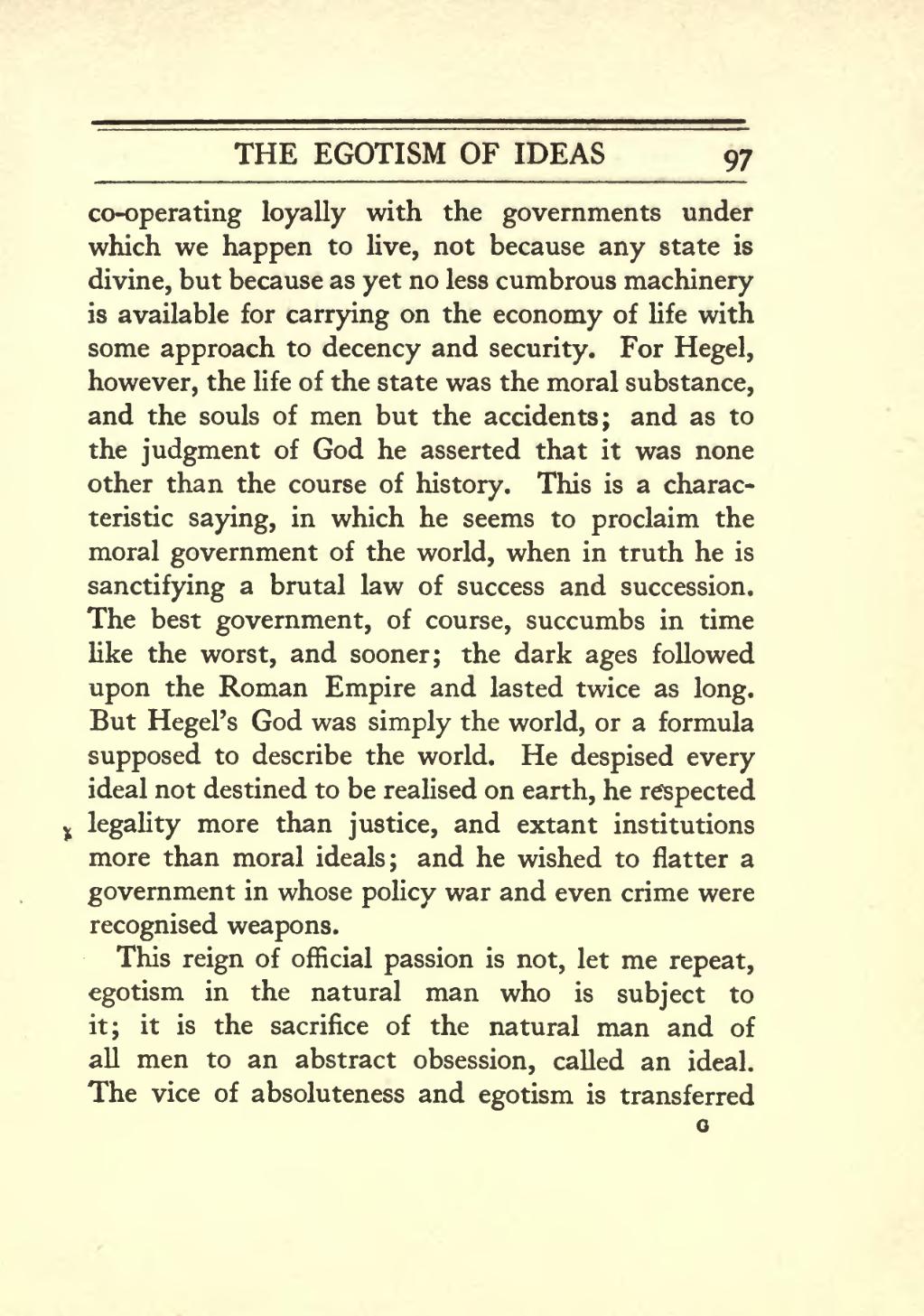co-operating loyally with the governments under which we happen to live, not because any state is divine, but because as yet no less cumbrous machinery is available for carrying on the economy of life with some approach to decency and security. For Hegel, however, the life of the state was the moral substance, and the souls of men but the accidents; and as to the judgment of God he asserted that it was none other than the course of history. This is a characteristic saying, in which he seems to proclaim the moral government of the world, when in truth he is sanctifying a brutal law of success and succession. The best government, of course, succumbs in time like the worst, and sooner; the dark ages followed upon the Roman Empire and lasted twice as long. But Hegel’s God was simply the world, or a formula supposed to describe the world. He despised every ideal not destined to be realised on earth, he respected legality more than justice, and extant institutions more than moral ideals; and he wished to flatter a government in whose policy war and even crime were recognised weapons.
This reign of official passion is not, let me repeat, egotism in the natural man who is subject to it; it is the sacrifice of the natural man and of all men to an abstract obsession, called an ideal. The vice of absoluteness and egotism is transferred
